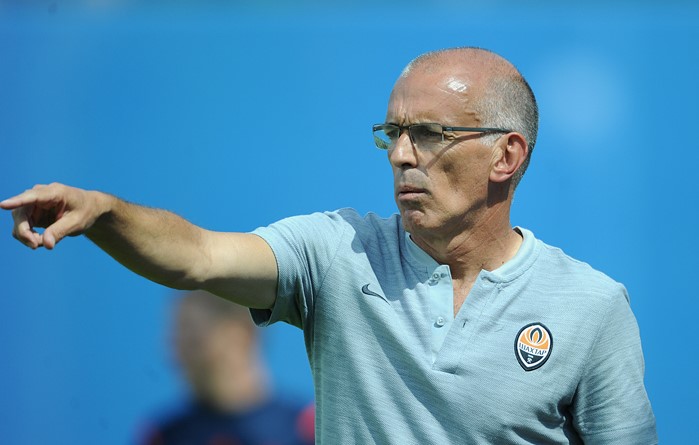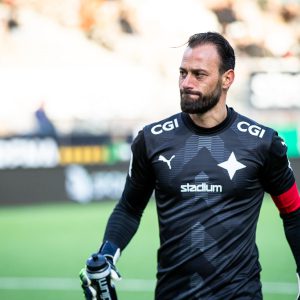

Role of Analysis in the Modern Soccer
As the more worldly of our two interviewees, Fernando Valente took it upon himself to dish out some advice, advice for football and indeed for life: “Yes, we want to win. Everybody wants to win. But the way we win can make the difference. For me, that’s the story of my life. I win, I lose like everybody. But the way I try do this is my way: we must share and we must always be focused.”
Head coach of Shaktar Donetsk’s Under 21 team, Valente has a wealth of experience in the coaching side of football. In a career spanning nearly three decades, Fernando has overseen nine clubs. One of the more recent developments in his long career in management – and one he has a lot of strong views on – is the rapid growth of the analysis sector.
“The origin of my interest for analysis has to be the passion for football. That’s the start of everything – your passion”: Abel Pimenta, a senior analyst with Sevilla FC, represented this new sector in the most recent Soccer Hub interview. Together, Abel and Fernando sat down with Soccer Hub’s Nuno Milheiro to discuss all things analysis.
We should start off by saying that this wasn’t the first time Fernando and Abel had met. They worked together for some time at Desportivo Aves where Fernando was manager. “When I found him seven years ago, he was a young student… I’m very happy about his career about his life,” Fernando said of Abel. “When we find in our life great people, we must keep them in our hearts.”
“The way you see the game and the concepts that you have to understand, for me Mr Valente was a very important person,” Abel said of his old boss.
“I’m an old guy,” Valente says with a twinkle in his eye. But age hasn’t been a barrier for learning for the Portuguese manager. “You need to wake up about new ideas, new technologies.” “When I begin my career, the analysis was not so important,” he says – that couldn’t be further from the truth now.
But just as important on replying on your staff to provide you with analysis is making your own in the most important area of all, the live football match. “Even when we analyse our opponent many times, we need to make our own analysis in the moment. Many times, players are not prepared to take advantage.”
“Your vision, your capacity for understanding the moment, it means you are prepared to try and solve the problems of the game. When you are competent and you are prepared for the structure of the game, I think the opponent is not important.”
Having been in an analyst in Portugal, Argentina and now Spain, what does Abel think about how seriously analysis is taken in different countries? “In my experience, Portugal and Spain are two countries that the coaches, the analyst, the technical staff are people that try to understand the game very deeply.” Clearly, things are moving in the right direction.
But with so much information at our fingertips, how doe we know what to trust? “We live in an era that has a lot of information. We’ve passed through the era that doesn’t. We now have a huge amount of information – it’s a madness of information.”
The best way to use information is to always consider its practical use: “try to have one eye on the coach.” “You must prize in your analysis the points that are important to your coach,” Abel says. “Let me give you a practical example: if I am seeing an opponent and my team that in the first phase of build-up plays directly, maybe the spaces are not so important. What I need to see is maybe the centre-backs, how are they in duels?”
Fernando concurs with Abel’s flexible approach: “We must understand that information is not knowledge. We must transform the information into knowledge. I use the best to improve my knowledge.”
But Fernando is sceptical about the limits of analysis. “We have everything, we have great technology, we have great analysis, we have the best conditions physically. It’s amazing because we have supermen, super athletes. But the game, the quality of the game, most of the time we have only three, four, five touches [at a time]. Its all ‘fighting, fighting, duels, duels.’ Most of the time I don’t know what analysis we can do.”
Abel agrees that too much information can be overwhelming. “If you are always creating noises and interferences in the creation of behaviours, that process will be longer. Players will not be confident in these ideas.”
“Manage the situation, don’t create confusion in my players,” Fernando agreed. “We are here to create emotions for the people who see the game. Many times, we forget this.”
The message is simple. Analysis is a powerful tool when used correctly, but football is still a fundamentally volatile game. To control it, we must think in the moment.
More about Soccer Analysis at www.hub-soccer.com
Follow us on Facebook!
Leave A Reply Cancel reply
You must be logged in to post a comment.
Categories
Latest Courses
-
9 Lessons
-
1 Lesson
-
6 Lessons
You May Also Like
-
-
August 1, 2022
-
-
June 3, 2022
-
-
May 27, 2022






2 Comments
good
Hello. This is me.